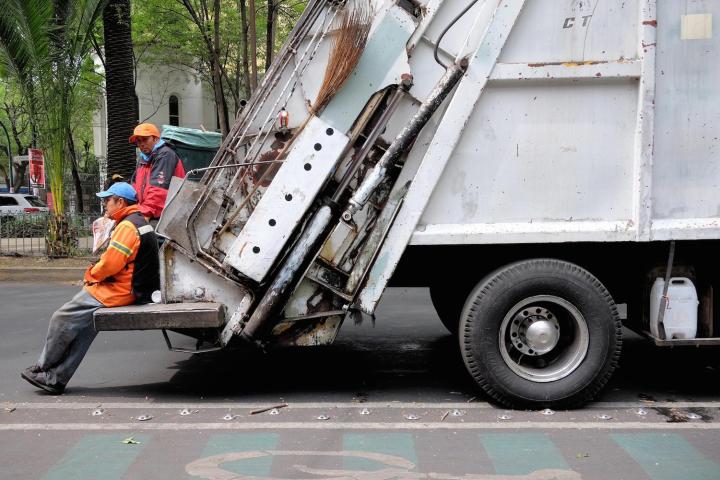
The Rubicon model is simple — when you need a trash pickup, you call it in. Because Rubicon does not have its own trucks or run any landfills, there may be a slight delay in actually securing a garbage truck (up to a day), but the point is to allow small, local trash companies to service both residences and larger corporations looking to reduce garbage costs and up their recycling game. By offering them more choice and ensuring that trucks are always leaving as full of waste as possible, Rubicon hopes to make the entire process more efficient and less wasteful.
It could have huge implications for both lessening the cost of collecting garbage and aiding in the recycling process, as well as ensuring that materials that would otherwise end up in a landfill are transported to the appropriate recycling centers. And that’s a good thing — Americans make up less than 5 percent of the global population, but somehow, we manage to produce a large percentage of the world’s waste. The average person in the U.S. throws away about 4.3 pounds of “garbage” without a second thought, and of the 220 million tons of trash we create every year, about 55 percent ends up in one of 3,500 landfills.
Any company that finds a way to improve the way we deal with garbage certainly has its work cut out for it, but waste management is profitable. As Wired explains, “Rubicon gets paid based on the amount of money it can save clients and how many recyclables it can sell off. By realigning the revenue model around how much trash it can divert from landfills, Rubicon is building a valuable trash business that doesn’t trash the planet.”
The similarities to Uber are no coincidence, either — Rubicon recently expanded its executive team, bringing aboard Oscar Salazar, founding CTO of Uber, as its chief technology advisor, and Phil Rodoni, the former vice president of software at Esurance, as their chief technology officer.
Rubicon initially focused exclusively on the corporate industry, helping Fortune 500 companies deal with the unwieldy amounts of waste they generated day after day, the San Francisco-based company believes that the residential market will prove even more intriguing.
The app is expected to launch in the next few months, and Rubicon is optimistic about its success. “We know from the past that when technology competes against brick-and-mortar assets, technology wins every time,” said Nate Morris, Rubicon’s co-founder and CEO.

